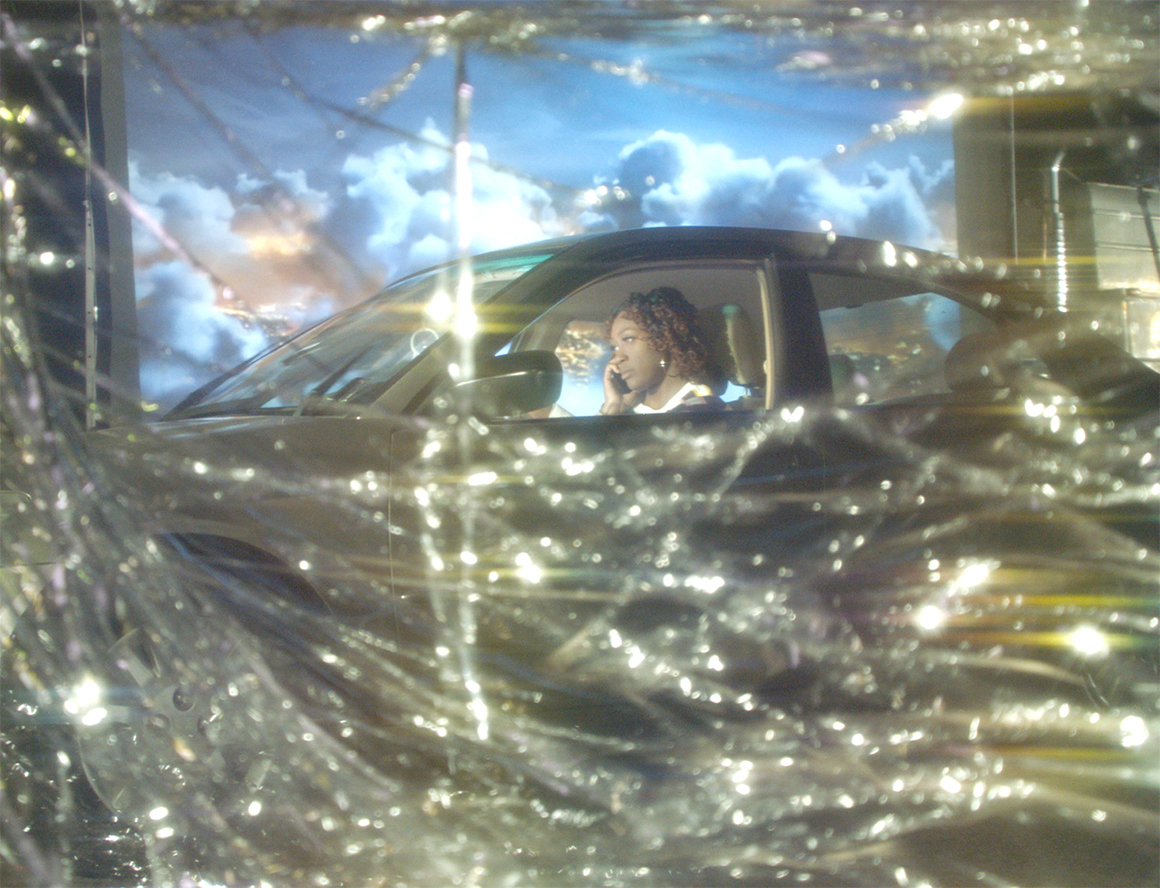Garrett Bradley interviewed in The White Review
22 June 2023
THE WHITE REVIEW — AKA is the first film in a trilogy that explores the impact of colourism within families, between Black mothers and their daughters. Instead of looking at skin tone and racial identity from a position of division or hurt, you consider these multigenerational relationships from one of healing and harmony. To bring this about you employ dreamy and tranquilising prismatic light effects across a montage of scenes depicting parent-child communion, women gazing meditatively into pools of water, refracted reflections and audio referencing Zora Neale Hurston’s words ‘Are you colour struck?’. What prompted you to make this the first film in your trilogy?
GARRETT BRADLEY— I found it liberating to imagine a trilogy, and to intend to make a large body of work. I felt no pressure about when these films would be made. Rather, the idea opened up a space to answer to the present moment. AKA started from a prompt of thinking about what it would mean to do a traditional adaptation of American films like IMITATION OF LIFE (1959) and PINKY (1949) that were investigating race and gender, but within the confines of the period. In my attempt to make that adaptation, I realised I had more questions than answers. This pushed me to look outward – in my work, I’m less interested in how I feel about things than what other people think and feel. So I went to friends, family members and people I’d met through social media and asked them a series of questions in order to find the answers. This process developed into a dialogue that really informed the shape of what AKA became. In that moment, I knew it had to become part of a trilogy, because it was too big to exist in just one piece. But did I know where it was going to go from there? No.
THE WHITE REVIEW — Your second film in the trilogy, SAFE, turns away from multigenerational relationships to those Black women have with themselves, and their environments. It’s shown across three channels, each screen showing your friend and collaborator, Donna Crump, enacting a different interior or affective experience: Donna cutting material, rolling down a hill or standing still while debris falls inches away from her. The mood of this film feels more sombre, harsher even, than that of AKA. What effected this tonal shift in your work?
GARRETT BRADLEY— The first answer is that the world is different. Since the making of AKA, the pandemic has occurred and the world has toppled over in a way that is much more visible. We’ve really ripped the façade off most of society, which is a good thing. SAFE came out of much more informal conversations with my friends during the pandemic, many of whom I’ve worked with before, such as Aloné Watts, who was the central figure in my short film ALONE, and Donna, who appears in AMERICA. Conversations with these women began by asking ‘how do you feel?’, ‘how do you feel about how you feel?’ and ‘do you think you’re able to make a difference in the world at this moment?’. A lot of the answers were, ‘I feel paralysed’ and then ‘I feel guilty about my paralysis’. During these discussions we considered how we make decisions in these moments. Are we making decisions based on our instinct and internal intuition? What’s the difference between those two things and how do they manifest in our bodies in diverse ways? These questions and our inability to articulate what we felt as a small collective became the premise of SAFE. How to visually articulate such feelings, therefore, became the real challenge. So the work is an attempt at making that difficulty visible, at making a case for interiority and our imagination, and the things inside of us being equally vivid, powerful, radical and effective as that which we might say or do in overt and louder ways in the physical world.
Read the full interview with Garrett Bradley conducted by Hannah Hutchings-Georgiu in The White Review here.
Image: AKA, 2019, Film Still, Single channel video, HD (color, sound) 8 minutes 17 seconds © Garrett Bradley
